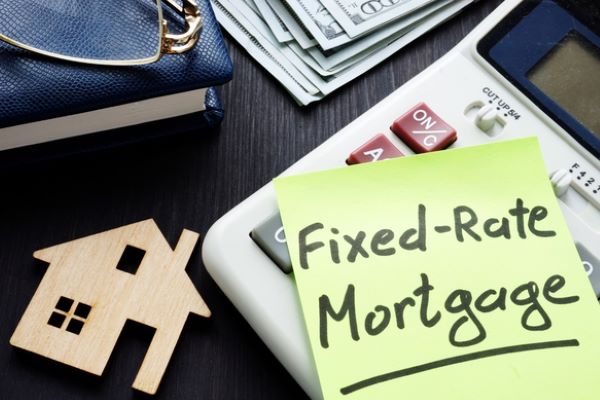Interest Rates are at record-low levels. Should I fix my loan?
Global economists agree: The COVID-19 pandemic represents the largest economic shock to the world economy in decades. Released in early June, the World Bank’s Global Economic Prospects envisions a 5.2 per cent contraction in global Gross Domestic Product (GDP) in 2020. It reflects what is predicted to be a deep global recession despite extraordinary countering efforts by world governments.
Due to the massive disruptions to nearly every industry in the global economy, the pandemic is predicted to be a 1 in 100 year economic event. Many lenders paused mortgage repayments to ease the financial burden for homeowners struggling with reductions in or complete losses of income due to COVID-19. There is an additional step mortgage holders should consider taking to benefit their bottom lines even further: fix their existing loan.

Housing Bubbles and Falling Prices
Housing is the number one source of wealth for the majority of Australian households, according to the Australian Bureau of Statistics. Since housing prices are generally slow to react to global economic disruptions, it may be too soon to tell how deeply the housing market will be affected by the pandemic. Predictions call for declines in property prices between 2.5 and 5.5 per cent depending on location, which will affect home equity rates.
One thing that already is resulting from the deep injury to the world’s economy is massive cuts in interest rates. Loan rates currently are as low as 2.68 per cent, making it an ideal time to consider a refinance of an existing mortgage or the rolling of other outstanding debt into a home equity loan.
Some of the benefits of refinancing include:
- Release of equity for “standby” cash
- Consolidation of debts into the home loan to reduce repayments
- Secure a lower interest rate
- Reduce monthly repayment amount
Interest rates may never be this low again. Do not miss out on the chance to consolidate and save.
Fixed Loans vs. Variable Loans
Timing is everything when it comes to deciding to refinance. There is no better time like the present to capitalise on the low-interest rates. They may be one of the few benefits of the post-pandemic economy.
Homeowners who have decided to take the plunge should carefully weigh all their options. There are some great fixed loan options and some variable loan alternatives.
Fixed-rate financing
Fixed-rate financing tends to be popular because of its predictability. Borrowers always know what their monthly repayment amount will be when the rate is fixed. Long-term mortgages are ideal for fixed-rate financing because they offer stability to the borrower.
There are however disadvantages to fixed-rate financing, the most prominent ones being that there is a significant loss of flexibility should there be changes to your circumstances (if you would like to sell / pay off your loan in the fixed period) and banks normally do not allow offset accounts (possibly resulting in more interest actually incurred if you have significant savings in your account). Also beware, if the cash rate drops, fixed rate borrowers do not reap these benefits.
Variable-rate financing
Variable-rate financing is riskier as the interest rate is based on either the prime rate or the index and is subject to fluctuate. Sometimes the rates will fall, producing savings to the borrower. Other times, it may increase, resulting in a larger monthly repayment amount. For longer-term loans, variable rates are considered relatively riskier. One of the biggest advantages to variable-rate financing however is the flexibility to change banks/alter/pay off the loan should your circumstances change. Most variable products also come with a free offset account with bank package products. Should you have significant savings/anticipate an incoming inheritance this may be a much more beneficial choice.
It is an age-old discussion about whether fixed-rate or variable-rate financing is better. Some studies suggest those with variable-rate financing may pay less over the life of the loan, making it a better choice. With interest rates at the moment, some may argue a fixed-rate refinancing might be more sensible, locking in what could prove to be historically-low interest rates for a long time to come. Working with a mortgage broker is the best way to determine which refinancing option best meets your individual needs.
To discuss further, book an appointment with our Lending Specialists, Jayden Chen or Susie Pei or contact us today on (03) 9835 8200 if you would like to discuss any points in this article further or should you wish to review your current loan interest rate/structure.
